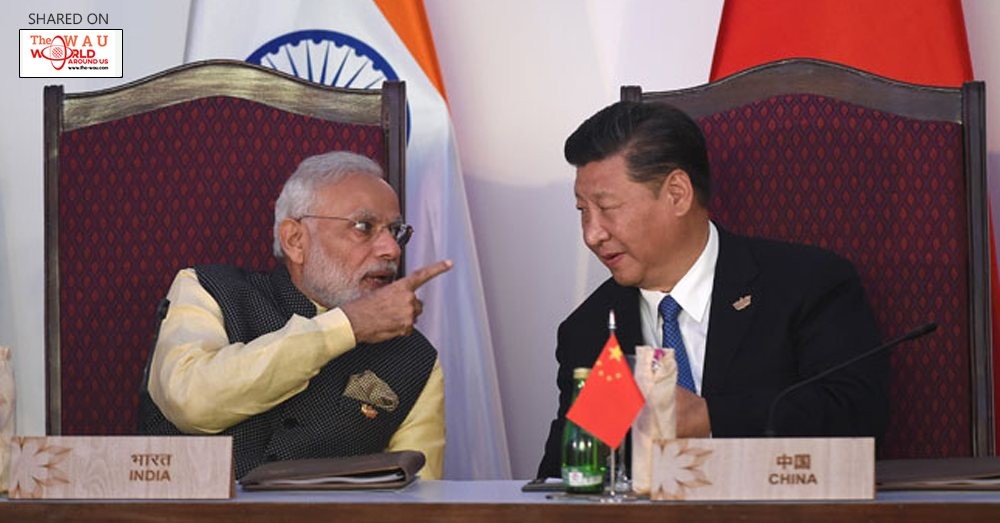The ongoing standoff at Doklam Plateau is less a boundary incident involving India, China and Bhutan and more a coming together of geopolitical faultlines in Asia that were long set on a collision course. China's wanton aggression, and India's refusal to be intimidated by it, stem from the different realities they live in. China believes it is destined to lead Asia, and indeed the world, by a process in which other actors are but bit players. India is strongly convinced of its destiny as a great power and an indispensable player in any conversation to re-engineer global regimes.
It is against the backdrop of these competing ambitions that China's provocations on the Doklam Plateau must be viewed. As the race to establish an Asian order - or at least determine who gets to define it - intensifies, China will test Indian resolve and portray it as an unreliable partner to smaller neighbours. The current differential in capabilities allows China to provoke and understand the limits of India's political appetite for confrontation, and create a pattern of escalation and de-escalation that would have consequences for New Delhi's reputation. Its border transgressions are aimed at changing facts on the ground, and allowing for new terms of settlement. For China to engage in a game of chicken, however, would be counterproductive.
In case of an armed conflict, the bigger loser will be China. The very basis of its "Peaceful Rise" would be questioned and an aspiring world power would be recast as a neighbourhood bully, bogged down for the medium term in petty, regional quarrels with smaller countries. For India, a stalemate with a larger nuclear power will do it no harm and will change the terms of engagement with China dramatically.
Through the Doklam standoff, China has conveyed three messages. The first is that China seeks to utilize its economic and political clout to emerge as the sole continental power and only arbiter of peace in the region. Multipolarity is good for the world, not for Asia. When India refused to pay tribute in the court of Emperor Xi Jinping, through debt, bondage and political servility that the Belt and Road Initiative sought from all in China's periphery, it invited the wrath of the middle kingdom. Confrontation was but a matter of time.
The second message from Beijing is that short-term stability in Asia does not matter to China, because it does not eye Asian markets for its growth. Through road and rail infrastructure along the Eurasian landmass and sea routes across the Indian Ocean and the Mediterranean, China hopes to gain access to an eighteen trillion dollar European market. Given this reality, no Asian country can create incentives for China to alter its behavior simply with the promise of greater economic integration.
And finally, Beijing has signalled that Pax Sinica is not just an economic configuration, but also a military and political undertaking. Its aggressive posture in the South China Sea, disregard for Indian sovereignty in Jammu and Kashmir, divide and rule policy in the ASEAN region, and strategic investments in overseas ports such as Gwadar and Djibouti are all indicative of its intention to establish a Sino-centric economic and security architecture, through force if necessary. The election of Donald Trump in the United States and political divisions in Europe has only emboldened China's belief that the reigns of global power are theirs to grab.
Given these stark messages from the eastern front, what can New Delhi do?
The options are limited. The first is to acquiesce to Chinese hegemony over Asia. In the past, India's foreign policy has attempted to co-opt China into a larger Asian project, from Nehru's insistence on China's position on the United Nations Security Council to facilitating its entry into the World Trade Organisation. It is clear today that it was the wrong approach and continuing to play second fiddle to the Chinese will not only involve political concessions but also territorial ones to China-backed adversaries like Pakistan.
The second option for India is to set credible red lines for China by escalating the cost for its aggressive maneuvers around India's periphery and to increase the cost of "land acquisition" for the Chinese.
Pakistan's approach vis-à-vis India may prove to be enlightening in this respect. Its development of Tactical Nuclear Weapons (TNW) to offset India's superior conventional abilities and a wide range of asymmetric warfare techniques have ensured that India is disproportionately engaged in regional affairs. For long, the Indian commentariat and diplomatic corps have believed the boundary dispute with China should be suppressed because the bilateral relationship is worth more than just territorial skirmishes. In doing so, they have normalised Beijing's behaviour, which now allows it to turn the tables and make unsettled boundaries a ceaseless source of tension for India. It is time, therefore, to elevate the boundary dispute as a matter of primary strategic concern and to articulate options to counter Beijing's threats on the eastern flank. It has done the former by staying away from a project that paid little heed to its sovereignty and territorial concerns. It is time to muster steel and to put together a blueprint for the latter.
China is attempting, vainly, to draw India into a conflict that it believes will prematurely invest it with the label of "first among equals" in Asia. Ironically, Beijing has failed to acknowledge that India does not have to behave like a 10 trillion dollar economy when it is not one - skirmishes, like the one at Doklam Plateau, can be swiftly and aggressively countered by India with little or no loss to its reputation. After all, it would be defending its sovereignty, and in the process, goading China's smaller neighbours into a similar path. If China wants to be relegated to a disputed regional power, it has only to needle India into a new season of skirmishes and into exacerbating - politically, militarily and diplomatically - Beijing's multiple land and maritime disputes in Asia.
(Samir Saran is Vice President at the Observer Research Foundation, India.)
Disclaimer: The opinions expressed within this article are the personal opinions of the author. The facts and opinions appearing in the article do not reflect the views of NDTV and NDTV does not assume any responsibility or liability for the same.
Share This Post












